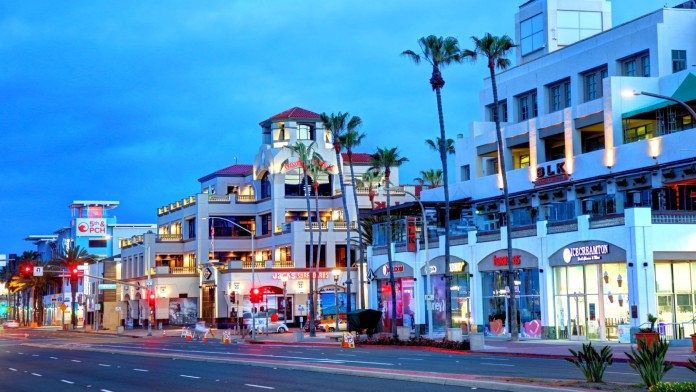Expert Insights
I recently heard about the Huntington Beach Mobile Crisis team and I think it’s just the kind of innovation we need to address the mental health crisis in the area. Teaming counselors with officers to respond to crisis calls is a great way to support people struggling with mental health problems like addiction. So often these issues co-occur but when the police respond it becomes an issue of criminal justice and can delay — or even prevent — mental health treatment. This way, people in crisis can get the support they need and it frees up law enforcement to tackle more serious crimes. I read they handled over 2,000 calls in their first year of operation which shows that there is most definitely a long-term need for the team.
~ Olivia Pennelle
Top 6 Drug Rehabs in Huntington Beach, California
Below are the top six addiction treatment centers in Huntington Beach based on the following criteria:
- Offering evidence-based treatment
- Accreditation
- Certifications
- Client testimonials / reviews
Broadway Treatment Center
Broadway Treatment Center, located in Huntington Beach, Orange County, near Hwy 39, is pet-friendly and has unique services including Surf Therapy and Couples Therapy as well as weekly outings to the beach, a park, or a picnic area. Residential stays are typically 30 days, and accommodations are in a comfortable, home-like setting.
Broadway Treatment Center specializes in:
- Detox
- Inpatient Residential Facility
- Intensive Outpatient Therapy
- Medication-assisted Treatment (Opioids)
- Co-occurring Disorder Treatment
- Individual Therapy
- Group Therapy
- Pet-involved Therapy
- Diversion Program (Criminal Justice)
- Aftercare
Treatment programs are supported by:
- Joint Commission
Location and contact information:
18582 Beach Blvd.
Huntington Beach, CA 92648
714-443-8218
Anchored Tides Recovery
Anchored Tides Recovery is located on Magnolia Street, in a mixed residential and commercial area between Newland and Bushard Streets, in Huntington Beach. Anchored Tides provides a comprehensive dual-diagnosis-enhanced rehab program for women only. Their evidence-based addiction treatment and dual diagnosis treatment focus on the unique issues women face.
Anchored Tides Recovery specializes in:
- Medication Assisted Treatment
- Intensive Outpatient Program
- Partial Outpatient Program
- Co-occurring Disorder Treatment
- Individual Counseling
- Group Counseling
- Cognitive Behavioral Therapy
- Mindfulness & Meditation
- Trauma Therapy
- Recreational Therapy
Treatment programs are supported by:
- Joint Commission
- CA Dept. of Health Care Services
Location and contact information:
19126 Magnolia Street
Huntington Beach, CA 92646
866-661-0974
Crescent Moon Recovery
Crescent Moon Recovery is located on Florida Street in Huntington Beach, between Beach Ave. and Main Street. They provide outpatient treatment for alcohol and drugs, including evidence-based and medically assisted treatment. They also treat co-occurring disorders, using a holistic mental health approach.
Crescent Moon Recovery specializes in:
- Detox
- Outpatient Treatment
- Alcohol, Drug, Opioid, Prescription Drug and Marijuana Addiction Treatment
- Partial Hospitalization Program
- Intensive Outpatient Program
- Medication-assisted Detox Treatment
- Co-occurring Disorder Treatment
- Individual Counseling
- Group Counseling
- Trauma Therapy
- Codependency
- Family Therapy
- 12-Step Groups
- Wellness Activities
- Adventure Therapy
Location and contact information:
18652 Florida St., Ste. 200
Huntington Beach, CA 92648
714-464-8474
Coastline Behavioral Health
Coastline Behavioral Health, located off HWY. 39, between the Oakview and Garfield areas in Huntington Beach, is a pioneer in experiential therapy, making use of the beaches and natural surroundings of Orange County to build esteem and encourage teamwork. They offer comfortable residential accommodations and executive rehab treatment as well as outpatient treatment programs for men and women.
Coastline Behavioral Health specializes in:
- Residential Treatment
- Outpatient Treatment
- Medication-assisted Detox Treatment
- Intensive Outpatient Treatment
- Co-occurring Disorders
- Executive Rehab
- Individual Counseling
- Group Counseling
- Experiential Therapy
- Camping
- Rock Climbing
- Golf, Volleyball, other sports
- Yoga
- Exercise/Circuit Training
- Art Appreciation
- Sober Living
Treatment programs are supported by:
- LegitScript
Location and contact information:
18377 Beach Blvd. Boulevard
Huntington Beach, CA 92648
714-841-2260
Buckeye Recovery Network
Buckeye Recovery Network is an outpatient addiction treatment facility located in Huntington Beach, on Beach Road near Hwy 39, within walking distance from various restaurants, shopping, and employment opportunities. They have a comfortable, home-like setting and specialize in gender-specific treatment.
Buckeye Recovery Network specializes in:
- Outpatient Treatment
- Medication-assisted Treatment
- Intensive Outpatient Treatment
- Partial Hospitalization Program
- Medication-assisted Treatment (alcohol and opioids)
- Co-occurring Disorders
- EMDR Trauma Therapy
- Individual Counseling
- Group Counseling
Treatment programs are supported by:
- Commission on Accreditation of Rehabilitation Facilities (CARF)
- LegitScript
Location and contact information:
19322 Beach Blvd.
Huntington Beach, CA 92648
888-792-9636
888-792-9637
The District Recovery Community
The District Recovery Community, located on Beach Road in Huntington Beach, provides a safe, structured sober living environment for young adults recovering from addiction. Thy focus on accountability, team building, and community bonding activities.
The District Recovery Community specializes in:
- Sober Living Environment
- Young Adult Services
- Community Activities
- Nutrition Plans
- Transportation
Location and contact information:
19671 Beach Blvd.
Huntington Beach, CA 92648
949-397-6095
How Does Huntington Beach Compare in Alcohol and Drug Use?
Huntington Beach is a California city southeast of Los Angeles that’s home to over 200,000 residents.1 While it’s known for surf beaches, such as Huntington City Beach, it’s also home to a growing opioid crisis. From 2017 to 2021, the rate of death due to opioid overdose nearly tripled.2 If you or a loved one is struggling with addiction or substance use disorder, there are over 360 accredited alcohol and drug rehab centers in Huntington Beach and the surrounding area.3
In 2020, about 18% of adults in California reported excessive drinking, which includes episodes of binge drinking or heavy drinking in the previous month.1 In 2021, 12% of adults in California reported using drugs (excluding cannabis) for non-medical reasons.2
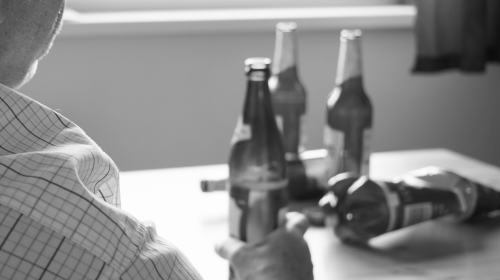
In 2020 nearly 24% of adults between 18 and 44 engaged in excessive drinking.
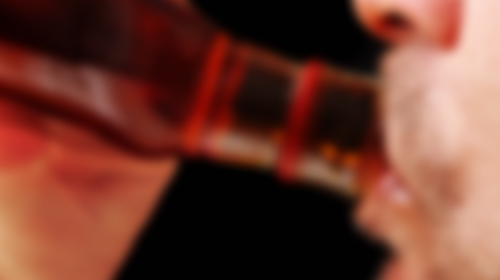
Men were more likely to engage in excessive drinking, with numbers at 22%.
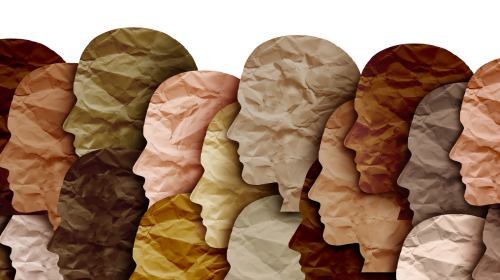
White people had the highest rates of excessive drinking, followed by Hispanic and Black people.
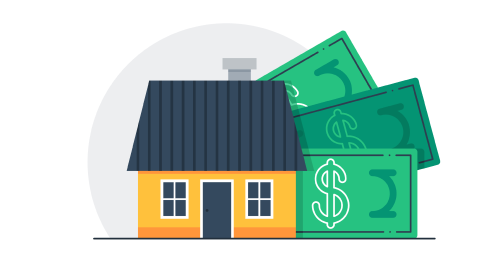
People who make $75,000/year or more are most likely to report excessive drinking
How Expensive is Drug Rehab in Huntington Beach?
The cost of addiction care can vary significantly. The type of program you choose will determine what your out-of-pocket costs are. Some factors that affect cost include:
Whether the program is an inpatient or outpatient program
If the facility offers special amenities
How long you will be in treatment
Whether the facility is part of your insurance plan’s network
The location of the facility
Residential rehab, or inpatient, has higher costs. You will be receiving medical care, as well as counseling for your addiction during treatment. In addition, you will live in the facility full time during the program. Your expenses will include housing and meals. If you select a luxury facility or program with extra amenities, the costs will be even higher.
Are There Low-Cost and Free Drug Rehab Centers in Huntington Beach?
If you are worried about the price of care, you can find free, low-cost, or sliding-scale programs in Huntington Beach, CA.
Some programs have structured payment plans that allow you to pay in installments. Some addiction treatment centers adjust patient costs based on their income level.
If you cannot pay at all, you may want to look for facilities that offer scholarships to pay for care. Some programs offer care regardless of your ability to pay and won’t charge you if you meet certain criteria. The staff at the treatment center can explain its billing policies.
How Do You Pay for Addiction Treatment in Huntington Beach?
Two federal laws ensure that all insurance plans cover rehab: the Affordable Care Act and the Mental Health Parity and Addiction Act. Under these statutes, private insurance, insurance through an employer, Medicaid, Medicare, and military insurance plans all have to offer coverage for addiction treatment. The amount of coverage and your out-of-pocket costs will vary depending on your plan.
Insurance companies work with defined networks of health care facilities, including addiction treatment facilities. If you choose an in-network treatment center, the insurance company will pay a larger share of your costs. Going with out-of-network Huntington Beach drug rehabs will result in higher costs for you. Either your insurance company or the center itself can tell you if it participates in your insurance network.
Medicaid
Medicaid is government-sponsored health issuance for people with low incomes, as well as people with certain disabilities and medical conditions. Medicaid is a state-federal partnership, and each state administers its own program. The California Medicaid program is called Medi-Cal, and people making 138% of the federal poverty level can apply for the program.3
Medi-Cal Behavioral Health Division (MCBHD) administers behavior health programs, including Medi-Cal Specialty Mental Health Services (SMHS) and Drug Medi-Cal programs. Rehabilitation facilities contract with the state to offer comprehensive services for Medi-Cal patients.
Medicare
Medicare is a federal insurance plan. People 65 and older are eligible for Medicare, as are people with certain health conditions or disabilities. Medicare plans cover physical and mental health, as well as prescription medications.
Medicare Part A covers hospitalization, including inpatient addiction treatment.4 You will be responsible for paying a co-pay amount, but Medicare will cover the rest of the costs. For outpatient care, Medicare Part B will cover it as mental health care.5 If you have a Medicare Advantage supplemental plan, you may have additional coverage for rehab.
Not all drug rehabs and detox centers in Huntington Beach accept Medicare. You will need to call the facility or a Medicare administrator to confirm that the facility is in-network. Getting treatment out-of-network will dramatically increase your costs, so it’s best to check before you commit to a program.
Private Insurance
Insurance that you get through your employer or that you purchase as an individual is called private insurance. These plans are sold by private companies and are not issued by the government. Popular insurance companies include Blue Cross Blue Shield, Aetna, UnitedHealth, and Humana.
Private insurance plans cover addiction treatment but not all plans have the same benefits. Each company works with its own network of addiction programs. The amount of coverage for care can vary between plans. Before you begin a program, make sure you understand:
- What your insurance deductible is
- What co-pays you will need to pay for addiction treatment
- If your plan covers inpatient, outpatient, or both
- Which facilities are in your insurance network
- If there are any exclusions to your coverage
Choosing the Right Level of Care
Inpatient treatment has a strong record for helping people achieve long-term addiction recovery. Inpatient programs typically offer a medical detox to those with severe addictions, either on-site or at a medical facility nearby. You can move from detoxification into the recovery program seamlessly.
If you go to an inpatient program, you will live at the facility for the duration of the program. You’ll be supervised by the staff and follow the schedule the program sets for you. Programs like this usually last 30-90 days, though some may continue longer.
Outpatient treatment is a good option for people who have a strong support network at home. Your friends and family can help you during care and make sure you stay on track for recovery. You can live in familiar surroundings while receiving care. You may be able to continue working or going to school as well.
If you go to an outpatient program, you live at home and attend therapy sessions according to the schedule the program follows. You may do a partial hospitalization program (PHP), where you attend treatment all day and return home in the evening. Other programs, such as intensive outpatient programs (IOPs) and standard outpatient programs (SOPs), offer several sessions per week, for a few hours at a time.
Both inpatient and outpatient alcohol rehabs in Huntington Beach use the same types of therapy. Evidence-based models like cognitive behavioral therapy, group therapy, and family therapy offer the best route to long-term recovery. Your program will design a therapy plan that suits your situation. The staff will also assist with planning for life after you finish the program.
Finding Specialized Drug Rehabs in Huntington Beach
Every drug and alcohol rehab in Huntington Beach offers its own program, with different treatment philosophies and amenities. You should look for a program that suits your needs, so you feel comfortable as you do the work to achieve recovery. Huntington Beach has a range of facilities that offer a variety of options.
Before committing to rehab, make sure that it is properly licensed and accredited. Ask about the therapy methods it uses. The staff should rely on effective, evidence-based therapeutic models. Be wary of experimental or debunked treatments. They may be risky and can do more harm than good.
Holistic
Holistic facilities focus on treating emotional, spiritual, and physical aspects of substance use disorder. In addition to conventional therapy, holistic programs might offer complementary and alternative medicine such as acupuncture, hypnotherapy, meditation, and aromatherapy.
Faith-Based and Christian
If you have a deep faith, if you want faith to be a part of your recovery, or if you choose to follow dietary or behavior rules based on your religion, a faith-based treatment center may be best for you. Faith-based programs combine evidence-based addiction treatment with spiritual guidance and activities.
Luxury
If you have the means to pay extra costs for rehab, you can attend a luxury facility. These facilities are more private and offer more amenities than typical programs. The center may look more like a resort than a medical facility, with extensive grounds and scenic surroundings.
Executive
If you need to continue to manage work responsibilities during treatment, there are executive inpatient programs that can accommodate you. Executive rehabs allow more access to computers and phones than typical facilities so that patients can continue to work. They may allow business travel under certain circumstances as well.
Dual Diagnosis
Many people with substance use disorder have other co-occurring mental health conditions. Untreated anxiety, depression, or PTSD can complicate managing a substance use disorder. Recovery can be more effective if you get care for all of your mental health needs.
What is Medication-Assisted Treatment (MAT)?
If you have an addiction to opioids or alcohol, you may be a candidate for FDA-approved medication to alleviate symptoms of addiction. These medications require a prescription from a doctor. You may need to be part of an ongoing program where you attend scheduled appointments.
Medication can reduce or prevent the physical effects of withdrawal from substances. During detoxification, many people experience pain, fatigue, nausea, and other uncomfortable symptoms. Cravings for substances can be overwhelming during that time. Medication can provide relief from the worst of the symptoms. After detoxification, there are medications that can replace harmful substances and reduce the chances that you will relapse into addiction. This medication can be used for months or years.
Medication can’t replace comprehensive addiction treatment. The mental and emotional aspects of addiction are as complex as the physical aspects. You should pursue counseling to address the substance use disorder in its entirety.
Methadone: Methadone is an FDA-approved opioid that can replace more harmful, addictive opioids. When you take methadone, it satisfies your body’s need for opioids, but it doesn’t give you the euphoric high that other drugs cause. It’s helpful for detoxifying, and it prevents cravings over the long term.
Suboxone: Suboxone is a combination of medications called Naltrexone and buprenorphine. Naltrexone treats opioid and alcohol addiction. It blocks dopamine receptors, so alcohol and opioids don’t trigger a high. Buprenorphine has characteristics similar to opioids. It can replace opioids in your system and limit the severity of withdrawal symptoms.
Naltrexone: Naltrexone can be used as a stand-alone medication to treat both opioid addiction and alcohol addiction. When you take it, you don’t feel high like you would if you take opioids or consume alcohol. This can reduce the desire to use harmful substances. You need a prescription for Naltrexone so talk to a doctor about whether it’s appropriate for you.
Antabuse (Disulfiram): Disulfiram is a medication that causes negative physical symptoms whenever you consume alcohol. If you consume alcohol after taking Antabuse, you will experience nausea, vomiting, and skin flushing. The unpleasant symptoms are a deterrent to continuing to drink alcohol. Antabuse requires a prescription from a doctor.
Acamprosate: Acamprosate minimizes the craving for alcohol.6 You stop having a desire to drink, which makes refraining from consuming alcohol much easier. You may need to take this medication long-term because the effects wear off if you stop taking it. A doctor can prescribe acamprosate.
Should You Travel for Drug and Alcohol Rehab in Huntington Beach?
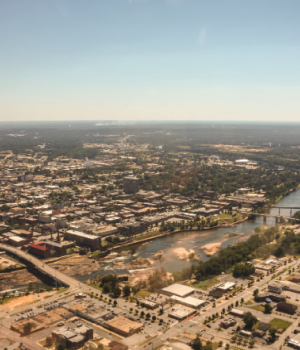 Huntington Beach, CA, has many options for rehab. If you are considering relocating for treatment, Huntington Beach could be a good fit for you. You might consider Huntington Beach if:
Huntington Beach, CA, has many options for rehab. If you are considering relocating for treatment, Huntington Beach could be a good fit for you. You might consider Huntington Beach if:
- You want to attend a facility located there
- You have friends or family who live in the areas
- Your insurance covers treatment in Huntington Beach, CA
- Huntington Beach is a place where you enjoy spending time
There are a lot of reasons why Huntington Beach, CA, could be the best location for you to recover from addiction. Moving for treatment is a personal decision, and you should do so if it’s what’s best for your recovery.
Huntington Beach, CA, is best known as a surfing destination. It’s located in Orange County, south of Los Angeles. Beach activities are the main attraction, with people coming to surf, play volleyball, swim, or just relax by the ocean. The areas nearest the beach are packed with shops, restaurants, and services like spas and yoga studios.
Many of the neighborhoods in Huntington Beach are high-end areas. Sunset Beach is the most famous beachfront area in the city, and it’s one of the most popular beaches in California. The Huntington Harbor area is comprised of five man-made islands, and residents can be found using paddle boards and boats in the surrounding waterways. The Golden West area is close to the campus of Golden West College and home to students as well as permanent residents.
Huntington Beach is a short drive from the John Wayne Airport in Orange County. The Los Angeles airport is a larger facility with more flights, but it’s 30 miles away, and traffic can be heavy. The city sits along The Pacific Coast Highway, also called CA Route 1, which runs up the length of the state. Huntington Beach is also close to Interstates 10 and 15.
Drug and Alcohol Laws in Huntington Beach, CA
Marijuana is legal in California, both for medical and recreational purposes. Production and sale of cannabis products are strictly regulated and require proper licensing. Other drugs are illegal, but penalties for possessions can be flexible.
California law prioritizes getting people care, even if they have a criminal record. Under California’s Proposition 36, non-violent offenders who have substance abuse disorders can get a sentence of probation with addiction treatment instead of jail time.7 California has expanded Medi-Cal coverage to include contingency management and incentivized treatment program.8 This therapy method includes rewarding patients with vouchers or gift cards for desired behavior, such as passing drug tests.
Thanks to California Senate Bill 349, California Ethical Treatment for Persons with Substance Use Disorder Act, there are robust protections for substance abuse recovery patients and their families.9 Facilities must meet minimum standards for providing evidence-based treatment. Staff must have relevant qualifications, and facilities must be capable of treating co-occurring disorders. All facilities must have a patient’s bill of rights that patients and their loved ones can easily access.
California’s Good Samaritan law encourages anyone who witnesses an overdose to call 911 for emergency care.10 If you assist someone experiencing an overdose, police cannot arrest you for drug possession.
Resources
- Huntington Beach, California Population 2020 (Demographics, Maps, Graphs). (n.d.). Worldpopulationreview.com.
- Opioid Overdose & Death in Orange County | Orange County California – Health Care Agency. (n.d.). Www.ochealthinfo.com.
- FindTreatment.gov. (n.d.). FindTreatment.gov.
- America’s Health Rankings. (2021). Non-Medical Drug Use – Past Year In California.
- America’s Health Rankings. (2020). Excessive Drinking In California.
- California Department of Health Care Services. (2022). Behavioral Health Services.
- Medicare.gov. (2022). Inpatient hospital care.
- Medicare.gov. (2022). Mental health care (outpatient).
- NAMI. (2022). Acamprosate (Campral).
- California Legislative Analysts Office. (2000). Proposition 36.
- California Legislative Information. (2021). Bill Text.
- California Legislative Information. (2022). Bill Text.
- California Legislative Information. (2013). Bill Text.

